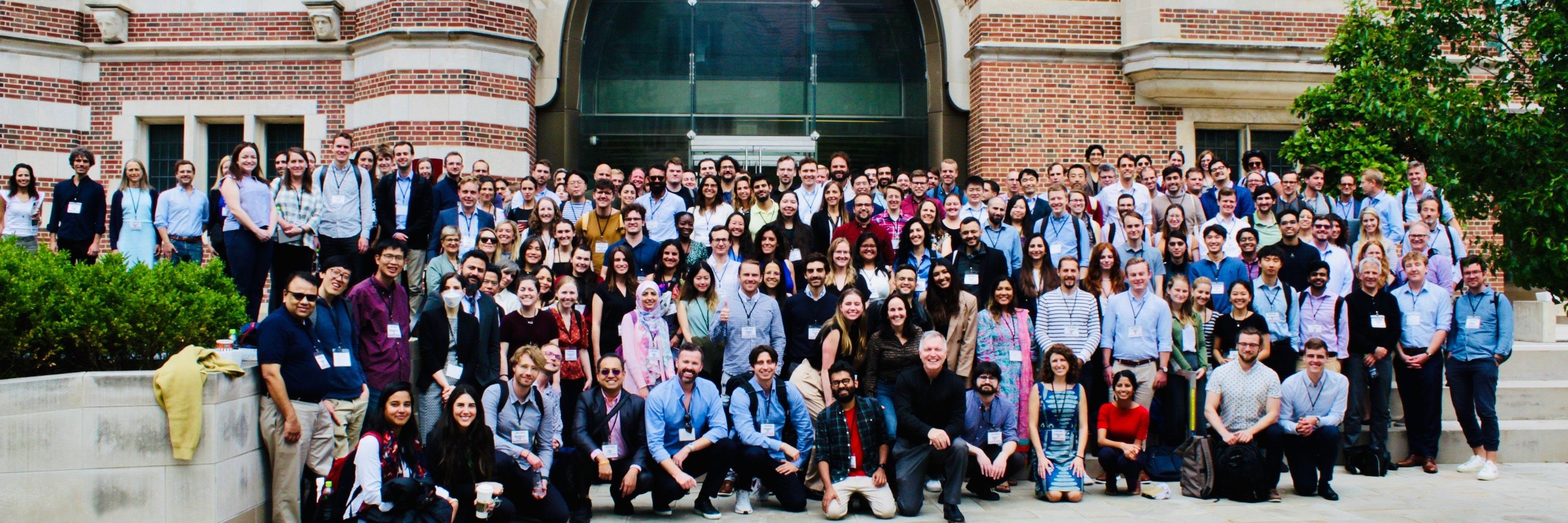
Economist, Prof at Columbia University.
Chief Economist: Centre for Net Zero (Octopus Energy Group).
Co-editor: Journal of Public Economics.
1st gen, 🏴
https://www.rmetcalfe.net/
Robert "Bob" Melancton Metcalfe is an American engineer and entrepreneur who contributed to the development of the internet in the 1970s. He co-invented Ethernet, co-founded 3Com, and formulated Metcalfe's law, which describes the effect of a telecommunications network. Metcalfe has also made several predictions which failed to come to pass, including forecasting the demise of the internet during the 1990s. .. more
Reposted by Paul Nightingale, Sabrina Wulff Pabilonia

www.aeaweb.org/conference/w...
Well worth a watch!

@johnlist.bsky.social and I will send out a call for abstracts early in the Spring.
bfi.uchicago.edu/events/event...
@katymilkman.bsky.social
✅ Submissions by Feb 1
📄 Full papers only (no abstracts)
🎤 Keynote: Prof. @rmetcalfe.bsky.social
🔗 more details here: www.lse.ac.uk/geography-an...

Reposted by Richard S.J. Tol, Paul Lehmann, Robert Metcalfe

✅ Submissions by Feb 1
📄 Full papers only (no abstracts)
🎤 Keynote: Prof. @rmetcalfe.bsky.social
🔗 more details here: www.lse.ac.uk/geography-an...
Reposted by Robert Metcalfe
www.aeaweb.org/conference/2...
Reposted by Richard S.J. Tol, Robert Metcalfe, Paul Nightingale

Reposted by Robert Metcalfe, Paul Goldsmith-Pinkham
Reposted by Robert Metcalfe

"Our findings suggest that dynamic pricing for public EV charging generated large consumer welfare gains."
Reposted by Robert Metcalfe

Reposted by Robert Metcalfe
Suggests another margin that firms are able to cut costs on when minimum wages increase.
(parallels with our work on workplace injuries).
Reposted by Robert Metcalfe
In most jobs, the firm bears the risk of demand shocks unless extreme (-> layoffs).
Reposted by Robert Metcalfe

Avg hours worked per year in hospitality is 26, compared to 35-40 in most other industries.
But workers can't fill the spare hours with another job as they don't know when they'll be scheduled to work.
Reposted by Dani Rodrik, Chris Hanretty

Reposted by Gernot Wagner, Robert Metcalfe
www.economist.com/finance-and-...

Reposted by Robert Metcalfe, Kevin Miller


Reposted by Georg Weizsäcker

Sign up here: docs.google.com/forms/d/e/1F...

My JMP addresses an under-studied aspect of the labor market: schedule unpredictability among hourly workers in the service sector.
🧵👇
Reposted by Robert Metcalfe, Aaron Sojourner

It challenges the idea that stricter policies are always more effective by showing that policy avoidance rises with stringency during the early period of implementation.
🧵👇
#Econsky #EconJobMarket #EconJMP
Reposted by Robert Metcalfe
JMP: "The Economic Incidence of Schedule Unpredictability in Hourly Work"
Website: hannahfarkas.github.io
Interests: Environmental Econ, Labor Econ

(She exploits weather and minimum wage variations.)

JMP: Does Greater Policy Intensity Improve Policy
effectiveness? Evidence from Seoul, South Korea
Website: sites.google.com/view/hayeonj...
Interests: Environmental Econ, Behavioral Econ
Reposted by Christian Odendahl

JMP: "The Economic Incidence of Schedule Unpredictability in Hourly Work"
Website: hannahfarkas.github.io
Interests: Environmental Econ, Labor Econ
We have two exceptional scholars on this year’s AP market — both bring awesome and policy-relevant research agendas to the market.
www.sipa.columbia.edu/sipa-educati...
Reposted by Robert Metcalfe
It has been an incredibly enriching experience to immerse myself in this thriving academic community — and the kind, curious, and passionate researchers at SIPA made it easy to enjoy every day of my research stay.
Reposted by Paul Lehmann, Robert Metcalfe

"42% reduction in household electricity demand during peak hours, with 100% of this demand shifted to low-cost, low-emission off-peak periods."
Reposted by Richard S.J. Tol, Robert Metcalfe, Stuart Shapiro
CNZ ran the world’s largest AI-managed EV charging trial with 13,000 UK households. Check out the results 👇
Summary & working paper 🔗 www.centrefornetzero.org/papers/ai-in...






